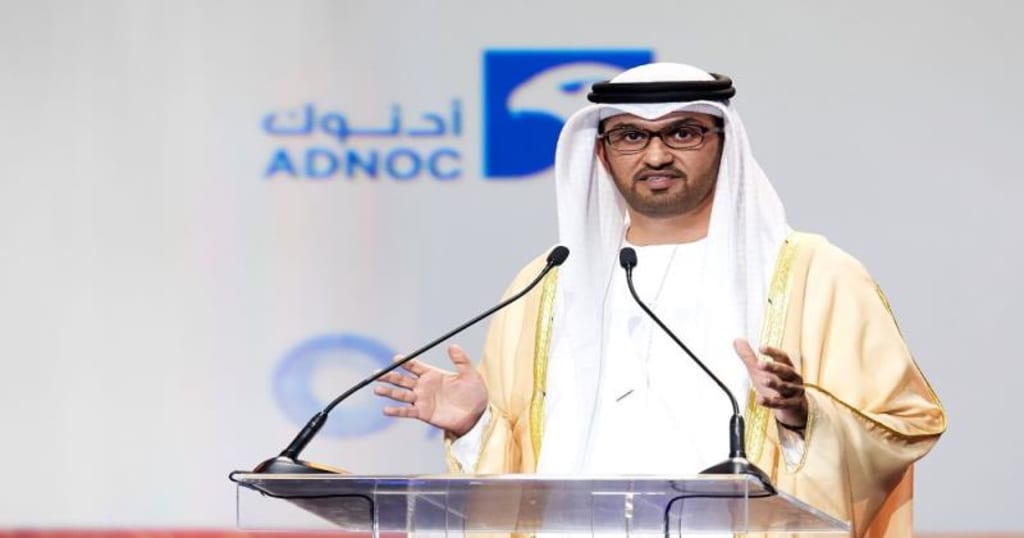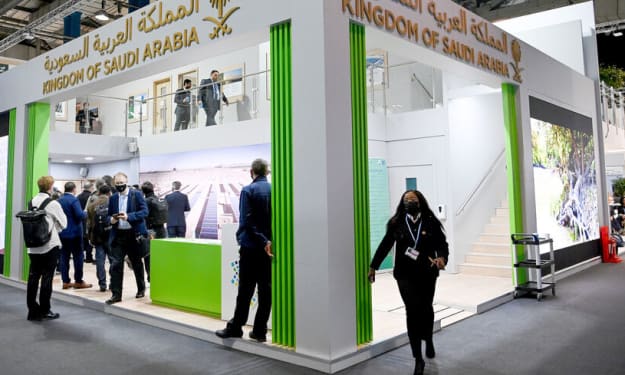What Is the Climate Summit COP28? Why does it matter? And what is the United Arab Emirates objective?
The UAE leadership needs quickly to show where its ambition lies in ending the fossil fuel era and ramping up the era of renewables and green growth.

The Climate Conference of the Parties (COP) is the most prominent annual summit which is organized by the United Nations under the leadership of a rotating selected country. Last year it was organized by Egypt, and the previous by the UK. The conference has been held annually since the first United National climate agreement in 1992. This summit is used by governments and other key stakeholders to agree on policies to limit global temperature rises and adapt to impacts caused by climate change and variability. One of the most important recent COP summits was the COP15 that was held in Paris in 2015 and which resulted in the Paris Climate Agreements. This is a legally binding agreement with the overarching goal to limit the increase in the global average temperature to below 2°C above pre-industrial levels and promote investment to limit the temperature increase to 1.5°C above pre-industrial levels. This general movement is now captured by a relatively new trend called Net-Zero.
What is Net-Zero? And how do we get there? Reaching net zero emissions means removing an equal amount of CO2 from the atmosphere as we release it. To decarbonize the global economy, and reach Net-Zero, we need to reduce the level at which the greenhouse gases going into the atmosphere are harmonized by their complete removal. Based on the commitment of 2021, which was adopted in Glasgow, we should reach this level by 2050 if all countries deliver on their commitment. According to carbon research institutes, on the 1.5-degree Celsius target, the atmosphere can absorb (with a starting point at the beginning of 2020), no more than 400 gigatonnes (Gt) of CO2 if we are to stay below the 1.5°C threshold. With emissions at a constant level, the existing “carbon budget” would be expected to be used up in less than eight years from now. Based on the reduction trends (which have also been affected by Covid 19 economic and financial crisis), we will unlikely make the cut. In financial terms, under the 1,5 C Net-Zero plans almost $30 trillion dollars will have to be invested by 2050 (UN and Davos Economic Forum). This corresponds to roughly 4 percent of annual GDP (in 2021 money). While these investments are high, we should look at the investment opportunity at hand, not only the cost associated with climate mitigation.
Time of the UAE to showcase their sustainability leadership: The UAE will host 2023’s climate summit, which kicks off at the end of November. For the first time an oil and gas producer will host the global climate summit. This is both powerful and controversial. The United Arab Emirates is one of the world’s biggest oil producers, and the President of the event this year will be Sultan Ahmed al-Jaber who is also the CEO of the UAE National Oil Company. As oil and gas companies have resisted climate policy changes and lobbied to extend the lives of hydrocarbons, activist groups and global foundations are criticizing the UAE climate’s role claiming they cannot set the right example to take decarbonization and climate adaptation seriously. While this is a valid criticism, Sultan Ahmed al-Jaber has taken the new role with aggressive ambitions and humility. He has argued that “as it is the fossil fuel industry that must change most to stave off the climate crisis, an oil industry insider was best placed to make that change”.
What are the objectives of this year’s summit? And what is at stake? Soon before the opening of COP28, the United Nations will publish the first two-year assessment of global progress to slow down climate change called the “global stock-take” The overview was established during COP26 in Glasgow and is scheduled to be repeated every five years. Everybody expects limited progress in terms of decarbonization progress, in spite of the bold commitments by most countries to reach Net-zero by 2050.
Having attended 4 COP summits over the last 20 years, I can report that these bureaucratic events will not produce breakthrough outcomes. I however anticipate the UAE to play a bold card, using its abundant capital, and energy leadership to ensure that this Summit is about investment, and action, unlike the previous two COP events in Egypt and in the UK which were mostly political shows. There is also clarity that the private sector and capital markets will play a larger role to promote green-growth, clean tech and decarbonization going forward. What are the risks if decarbonization does not succeed? Crossing the 1.5°C threshold risks unleashing more severe climate change impacts, including more frequent and severe droughts, floods, heatwaves and wild fires. The price-tag to reach Net-Zero is clearly significant, however the cost of unmanaged and unpredictable climate change (based on business as usual) would be much higher as climate events are projected to affect about 20 percent of global GDP by 2040. In the US alone according to the White House, natural hazards could cost the U.S. federal budget about $2 trillion per year, a 7.1% loss in annual revenue by the end of the century.
Can the UAE inject private sector dynamist to deal with climate change?
There is pressure on and scrutiny of UAE and Dr Sultan Al Jaber to prove their management of the Cop presidency is for the planet and not their existing energy leadership. The UAE has the opportunity to show the oil sector leadership to accelerate the transition to green growth, but the window is closing fast. The UAE leadership needs quickly to show where its ambition lies in ending the fossil fuel era and ramping up the era of renewables and green growth. They are strategically placed to do so, but the world needs to understand their vision and their ability to deliver it on it.
The UAE leadership should focus on showing the world that we are sitting in one of the biggest business opportunities of our generation, as we expect at least $12 trillion of annual sales by 2030 across transport, power, and blue/green hydrogen. This is a promising start, and if the UAE can de-politicize the summit for the climate and keep the focus on turbocharging decarbonization investments, we all win, including the environment.
About the Creator
Andrea Zanon
Andrea Zanon is an international sustainable development and empowerment specialist who has dedicated his life to reducing poverty, promoting sustainability and empowering ambitious people






Comments (2)
The UAE has the opportunity to show the oil sector leadership to accelerate the transition to green growth, but the window is closing fast.
The price-tag to reach Net-Zero is clearly significant, however the cost of unmanaged and unpredictable climate change (based on business as usual) would be much higher as climate events are projected to affect about 20 percent of global GDP by 2040. In the US alone according to the White House, natural hazards could cost the U.S. federal budget about $2 trillion per year, a 7.1% loss in annual revenue by the end of the century.